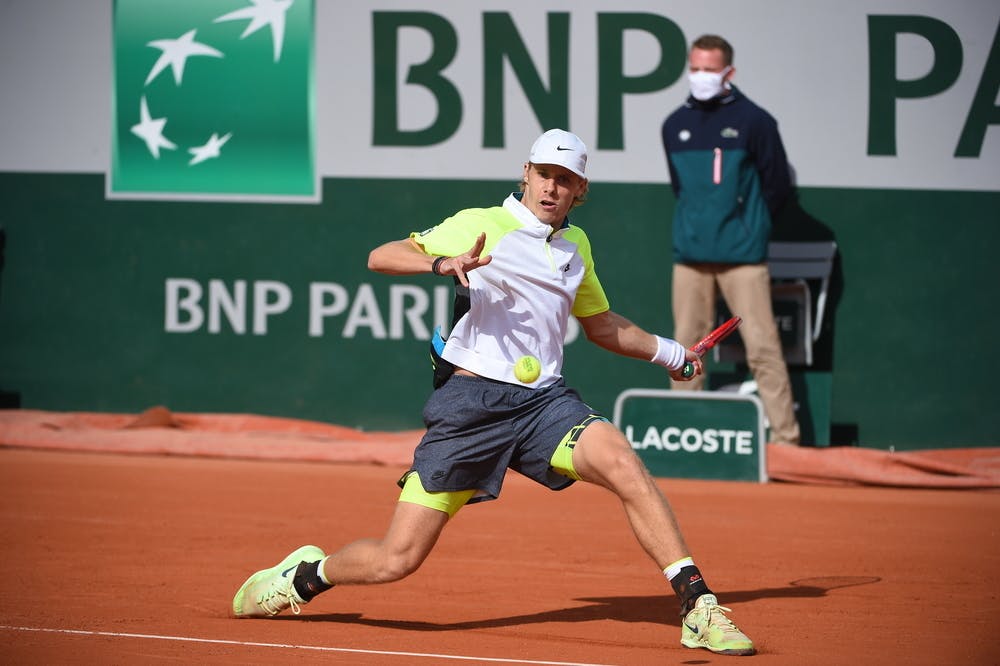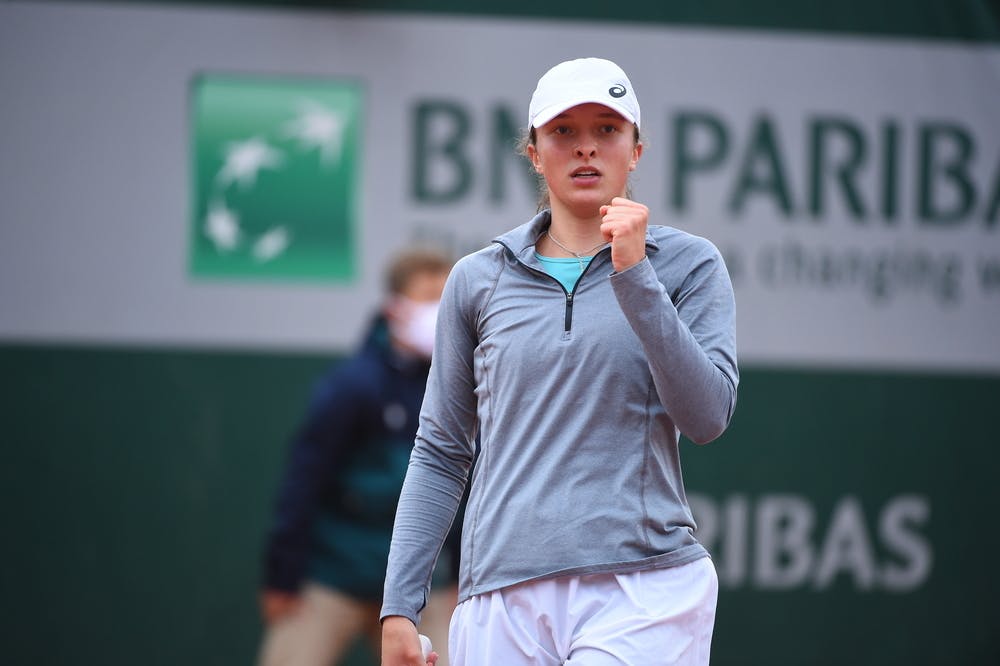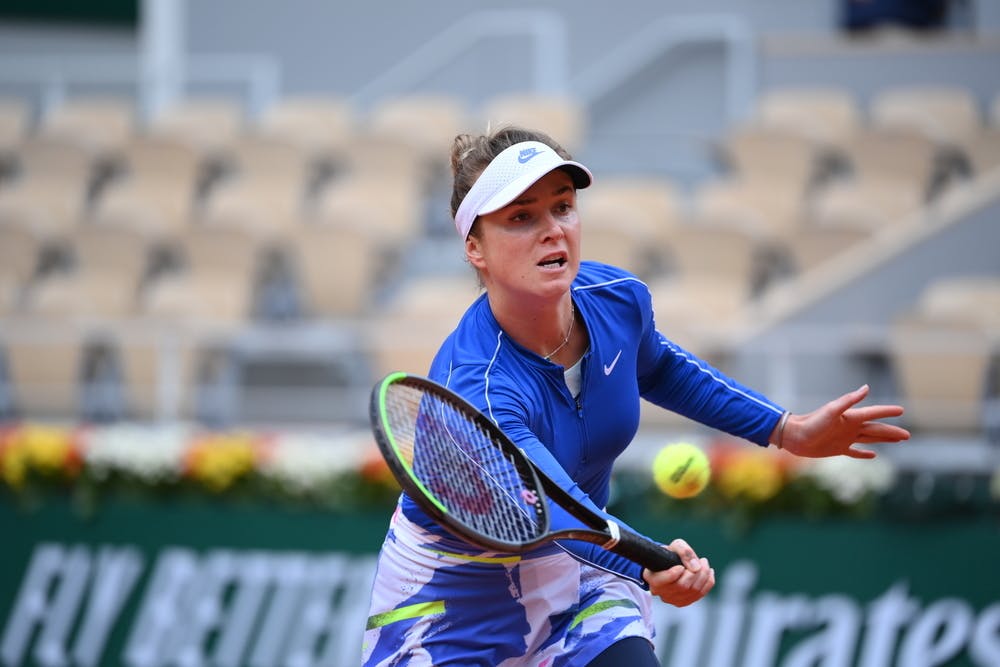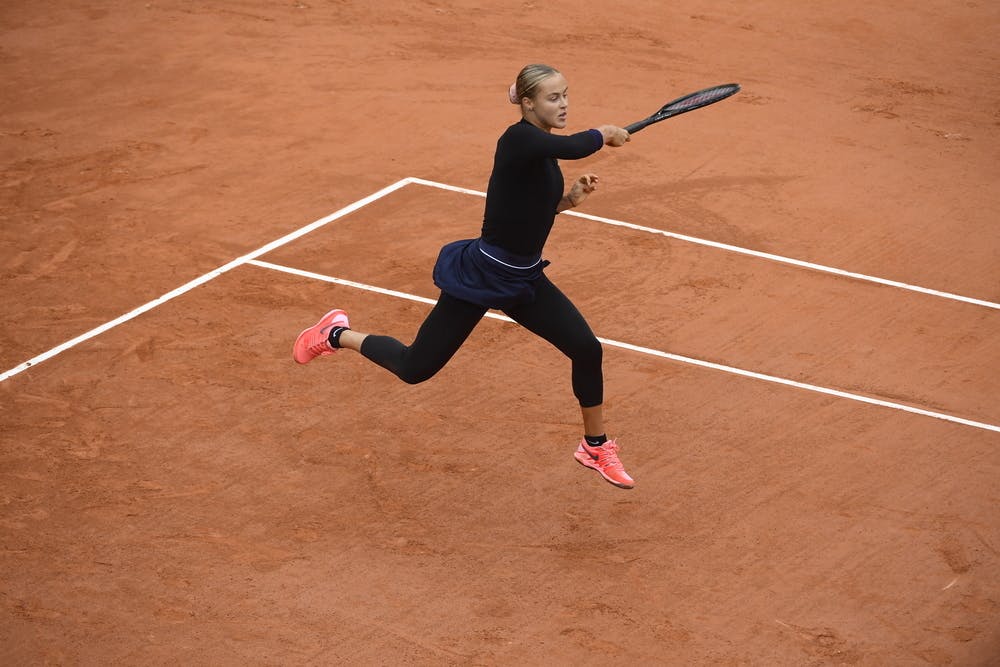Percolating pressure, jarring expectations and a diabolical scoring system that never let’s players relax... Tennis is a mental game as much as it is a physical one, and these days top players are doing all they can to ensure their minds are clear so they can achieve their goals on court.
Mind games: Players turn to psychologists to unlock their full potential
More and more stars are taking a special interest in psychology to find that extra bit of edge on court

Many players, like Canada’s Denis Shapovalov, have turned to sports psychology to unlock their potential.
After careful consideration, the 21-year-old made the decision to do so during quarantine this year, but he cautions that it’s important to find the right fit before moving forward.
“I think it's tricky sometimes with psychologists because if it doesn't work out well then you might be kind of lost and kind of not doing the right things, so there has to be a connection like anything, like your tennis coach, or your fitness coach,” he said.
Thanks to his work with Vadim, a sports psychologist that used to work with his current coach, Mikhail Youzhny, Shapovalov has seen his ability to weather rough patches during matches improve by leaps and bounds.
“He's definitely given me a lot of exercises and things to do that just kind of bring my focus away from mistakes and stuff like that,” he said. “He has given me ways to get rid of the anger or emotions I have inside of me, I think it's just been amazing and obviously I'm really happy that it happened and that we are working together.”
In the past, tennis has seen many veterans turn to sports psychologists to squeeze every last drop from a stagnant game, as well as players who, after years of struggles, have identified and addressed specific weaknesses in their mental approach. But even teenagers with virtually blank slates can reap the rewards.
Poland’s Iga Swiatek has been working with her sports psychologist, Daria Abramowicz, for around two years and travels with her regularly on tour. In those two years the 19-year-old has gone from a top junior to a top pro, and she’s thankful to be improving more than just her mind-bending strokes.
“I don't think there are a lot of people talking about psychology in tennis,” said Swiatek, who is through to the quarter-finals in both singles and doubles this fortnight.
“But I believe that the mind, to be mentally tough, is surely one of the things that matters most in tennis, because anyone can achieve a very high level of tennis. Those who are mentally strong can handle the pressure better, and they are the best players. I have always wanted to evolve in this direction.”

Some players see the allure of a sports psychologist, but struggle to find the right connection. Others turn to their team for inspiration, or read books on the subject. Whether they have a dedicated team member on the job or not, every player knows how important psychology is in the sport.
“The mental part is very, very important,” says Elina Svitolina, the tough-as-nails Ukrainian who reached her third Roland-Garros quarter-final this week. “Me, luckily from a young age, I understood that very early.”
Svitolina relies on her coach, her family and books to strengthen her mental game. She says she worked with a sports psychologist only once.
“I got a few things that really helped me to calm myself down on the tough moments, tough matches,” she said. “But the rest, it was a little bit too much, I would say, because tennis is a little bit different sport.”

Grigor Dimitrov has also worked with psychologists at times, but he says that these days friends and family help him to find his equilibrium.
“For me personally it's more of getting to know more and more myself,” says Dimitrov. “It helps me discover even more the goals that I want to do and how I want to achieve them, as well.”
Two-time Roland-Garros finalist Dominic Thiem has managed a brilliant career that includes his first major title in 2020, all without the help of a mental coach. But the Austrian sounds like a future convert.
“I haven't worked yet with a sports psychologist, even though I think that it's a good idea to do it. I think it can help a lot of players. It could also help me probably,” he said.
Slovakia’s Anna Karolina Schmiedlova, a talented former world No.26, has struggled with injuries and, at times, confidence on tour. She told rolandgarros.com that she’s gone the psychology route as well, but never really found the perfect fit.
“I tried it a couple of times with different people, but I never found anyone that would kind of fit me,” she said.

The current world No.161, who snapped a 13-match losing streak at the majors with upsets over Venus Williams and Victoria Azarenka last week in Paris, says the door is open for the right psychologist to enter. In the meantime, she’ll keep working on herself, using books and the people around her for strength.
“I have many great people that I can talk to, that I talk about my troubles, my confidence,” she said. “But not really anyone from psychology. I tried it before. I just try to work on myself, read books about being mentally tough. I don't know. I hope I will learn it by myself or maybe I will find someone better.”
Schmiedlova echoes the sentiment that all players seem to share, whether they are working with a psychologist or not: mentality is key.
“For me, I think it's the most important part,” she adds.
 ROLAND-GARROS
18 May - 7 June 2026
ROLAND-GARROS
18 May - 7 June 2026

